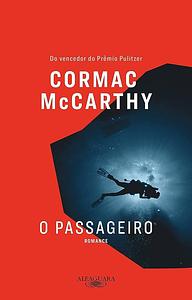Take a photo of a barcode or cover
dark
emotional
sad
tense
slow-paced
Plot or Character Driven:
Character
Strong character development:
Yes
Loveable characters:
Complicated
Diverse cast of characters:
No
Flaws of characters a main focus:
Yes
challenging
dark
emotional
mysterious
reflective
relaxing
slow-paced
Plot or Character Driven:
Character
Strong character development:
No
Loveable characters:
Yes
Diverse cast of characters:
No
Flaws of characters a main focus:
Yes
Very dense style; content wasnt engaging at all.
challenging
dark
emotional
reflective
sad
slow-paced
Plot or Character Driven:
Character
Strong character development:
No
Loveable characters:
Yes
Diverse cast of characters:
Yes
Flaws of characters a main focus:
Yes
Readers may be frustrated with the first act of this book setting up an apparent thriller/mystery that the reader will slowly realize McCarthy as no interest in elaborating on. I think McCarthy is subverting the expectations of a mystery novel's typical payoff to demonstrate that life lacks any predictable narrative. Things happen for no perceptible reason and this book is examining how its characters cope with that. No sub-story of this book exemplifies this more than the tale of the Spanish Revolutionary that passes away decades after the war that is told near the conclusion of this book. The old man was put against a wall and shot 5 times before waking up hours later in a pile of his dead comrades. Is friends died with a dream of a greater Spain and the hope that their sacrifice wasn't in vein. The surviving man saw the defeat of his cause and was left wondering what his life was for and how he can move past an event that would ultimately define him and yet provide him with nothing but pain. This story is one of many that McCarthy would drop in the middle of Western's tale. From a conspiratorial rant on the true nature of Kennedy's death to an in depth interview on the current state of physics, McCarthy is more interested in hearing what his characters have to say than developing a story with any resolution. As a side note I was pleasantly surprised that 80 something Cormac McCarthy included a transgender character in his story and portrayed them respectfully. Good job.
McCarthy delivers a masterwork in character study and philosophy, soaked in Americana and complements it with his brilliant prose to produce a must read for fans of Cormac and of character drive books. If are okay with reading a book interested in nothing but untangling the web of relationships built in a life lived in post-war America then this one is well worth a read.
challenging
dark
funny
medium-paced
Plot or Character Driven:
Character
Loveable characters:
Complicated
Avrei voluto scrivere due inutili parole su Il passeggero di Cormac McCarthy. Mi ero ripromesso di farlo, anche solo per ribadire l’ovvio, ovvero che fosse un libro sorprendente, dopo sedici anni di silenzio, del più grande scrittore vivente. Già, vivente. E poi ieri viene annunciata la sua morte. Si dice che un artista non muore mai e che grazie alle sue opere potrà vivere in eterno. Sì, Cormac McCarthy vivrà in eterno perché con il suo genio poderoso ha influenzato non solo la stessa letteratura, ma anche e soprattutto il cinema, per non parlare dei videogiochi. Giustamente tutti si ricorderanno e citeranno La Strada, ma il libro che più di tutti mi ha inquietato e fatto comprendere la forza inarrestabile delle parole è Meridiano di sangue. Quando si nomina Holden alla maggior parte della gente viene il mente il giovane, di Salinger, ma a me iniziano a tremare le vene e i polsi pensando al Giudice, quella figura albina e troneggiante, un incrocio tra Falstaff e Moby Dick che tiene in tasca le leggi dell’Universo.
Se non si fosse capito, questa non è una recensione, e neanche lo sarebbe stata se mi fossi deciso a scriverla tempo fa, ma vorrei aggiungere un’ultima cosa: quando ho finito di leggere Il passeggero ho avuto come la sensazione che se avessi abbandonato lo sguardo da quelle ultime frasi, il mondo intorno a me sarebbe scomparso per sempre. Ecco, oggi per me è come se la letteratura avesse respirato per l’ultima volta.
Se non si fosse capito, questa non è una recensione, e neanche lo sarebbe stata se mi fossi deciso a scriverla tempo fa, ma vorrei aggiungere un’ultima cosa: quando ho finito di leggere Il passeggero ho avuto come la sensazione che se avessi abbandonato lo sguardo da quelle ultime frasi, il mondo intorno a me sarebbe scomparso per sempre. Ecco, oggi per me è come se la letteratura avesse respirato per l’ultima volta.
Not as good as its sister book Stella Maris, but still worth a read. 3.5 stars.
Merged review:
Not as good as its sister book Stella Maris, but still worth a read. 3.5 stars.
Merged review:
Not as good as its sister book Stella Maris, but still worth a read. 3.5 stars.
Merged review:
Not as good as its sister book Stella Maris, but still worth a read. 3.5 stars.
Merged review:
Not as good as its sister book Stella Maris, but still worth a read. 3.5 stars.
dark
mysterious
reflective
sad
slow-paced
Plot or Character Driven:
Character
Strong character development:
No
Loveable characters:
Complicated
Diverse cast of characters:
Yes
Flaws of characters a main focus:
Yes
Minor: Mental illness, Suicide
mysterious
reflective
slow-paced
Plot or Character Driven:
A mix
Strong character development:
No
Loveable characters:
Complicated
Diverse cast of characters:
Yes
Flaws of characters a main focus:
Yes

